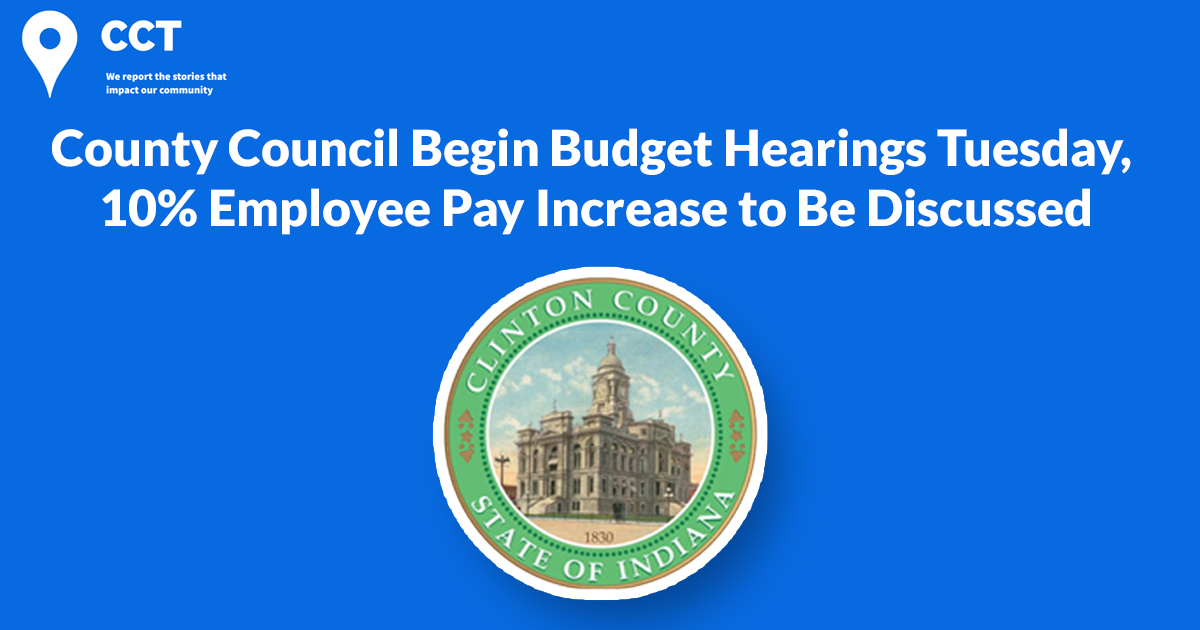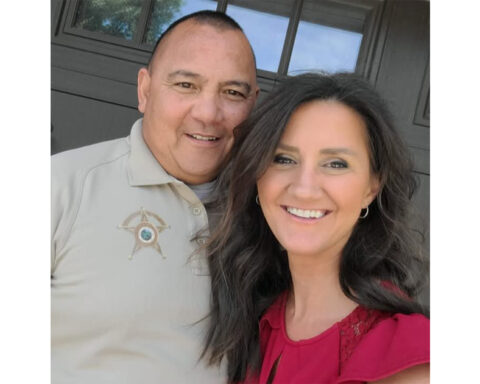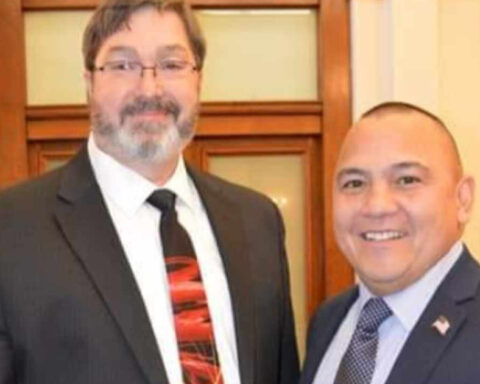CLINTON COUNTY, Ind. – The county budget process begins tomorrow, Tuesday, when the Clinton County Council meet with individual department heads to review 2023 submitted budgets.
A process that happens yearly during this time and something Clinton County Council President Alan Dunn said he was optimistic about.
“I guess I’m going into it feeling pretty optimistic,” said Dunn to members of the council and public during the August 9 Council meeting after announcing the state provided property tax levy and income tax information.
After the meeting Dunn explained the process the state uses to determine what a county can collect and use to pay for services and his confidence of achieving a 10% pay increase for county employees.
What does the state provide in guidance to the County?
“So our revenues each year, we have a couple of numbers that we have to wait to hear from the state,” said Dunn.
“One of the things that’s maybe a little bit of a misnomer on county budgeting is that for the most part – we have no control over how much revenue we raise – it’s determined at the state level and then we merely collect it.”
“So we found out a month ago what our expected, uh, property tax levy was going to be for the year and that was a 5% increase year over year. What we found out here in the most recent couple of days was the income tax projections from the state and that was up 6.5% year over year.”
The growth did not come as a surprise to Dunn
“So that’s reflective. I think that’s not surprising. We’ve had very good wage growth locally here at the industrial park. We’ve all seen the signs for the starting wages going up; we’re very low unemployment. So we expected to see a strong number on that income tax growth.”
“But to see it finally on paper was really a relief and gives us some, I think, some wiggle room as we go into the budget [hearings].”
Dunn explains that not all growth property tax payers goes directly to the County immediately
“So on the property tax side the levee growth for one year is based on a six year rolling average of income tax growth.”
“So it’s kind of a cross. They use an income income tax measure to determine a property tax levy growth, but that’s how they do it, and so that’s why that number is a little bit lower than on the income tax number, that’s up 6.5%.”
“It just looks at the most recent years collections, it looks at the current unemployment numbers it tries to make a projection on where we’re going to be for the next year, more of a faster response time than say on that property tax side.”
“So I was a little concerned that the revenues, because of that linkage to a trend might not be adjusting as fast as inflation is ingesting our expenses, which are happening every day real time.”
“But, I think these numbers would give us enough to work with, and I think we’ll be okay.”
Dunn says it is very likely to achieve a 10% pay increase for county employees
“Based on what we know now, based on my early kind of preview of some of the major department budgets that I’ve seen – and I want to commend the departments. They’ve been in very constant contact with me and we’ve talked through a lot of things offline before they were even submitted. But, I think they’ve done a fantastic job of trying to limit exposure in areas where we can.”
“I still think it’s a very, very likely that we’ll hold strong and try to do that 10% for our employees. Which our goal was to cover inflation and still give them an actual raise. If inflation is between 8 and 9%, for us to do 10[percent] gives an actual cost of living and increases their real wage growth of a percent or two and that was our goal.”
Assessed property values are mandated by the state to be at market value, explains Dunn.
“I guess the thing about property tax bills, there’s two components to it. There’s the tax rate, but there’s also the assessed value rate. And, as we know, over years of litigation at the state level, we are required constitutionally to try to assess value at a market value.”
“So we track that every sale that happens in Clinton county is recorded. It goes into a pot, it creates a, what we call a trend factor that says the sales, the average sales price this year was ‘X’ percent higher than it was last year and that trend factor gets applied to everybody’s assessed value. So we’re trying to capture what’s happening in the market.”
“I think we’ve all heard about how on fire the housing market has been. So that means the value of all of our homes have gone up and that’s good if we want to go get a home equity loan, it’s not good when they want to assess it for taxes. But, that all happens kind of automatically and formulaically based on instructions we get from the state.”
“And then the budgets here, we are talking about a four or 5% overall increase on our budgets at a time when costs are going up much more than that. So I think we’re doing as much as we can to control the growth of the budget, but we still have to provide the services that the taxpayer expects.”
“So it’s a lot of moving parts that come down to one number on a person’s tax bill.”
The budget hearing begins at 8am August 16 in the Courthouse. The hearing is open to the public.






